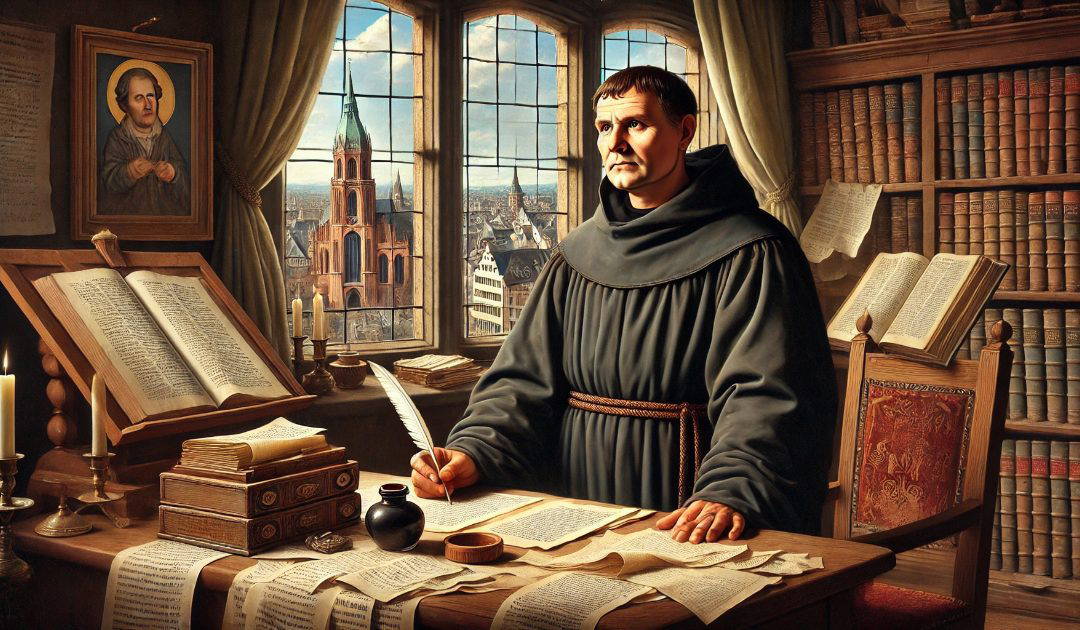On 14th January 1501 Martin Luther entered the University of Erfurt. Martin Luther (1483-1546) was a German theologian and key figure in the Protestant Reformation, a movement that challenged the practices and doctrines of the Roman Catholic Church. Born in Eisleben, Luther initially pursued a career in law but shifted to theology after a life-changing experience during a thunderstorm, vowing to become a monk.
In 1517, he famously nailed his Ninety-Five Theses to the door of the Castle Church in Wittenberg, criticizing the Church’s sale of indulgences and calling for reform. His theses sparked widespread debate and laid the groundwork for the Reformation. Luther emphasized salvation through faith alone, the authority of Scripture over Church tradition, and the priesthood of all believers, challenging the Church’s hierarchical structure.
Luther’s ideas spread rapidly, aided by the printing press. He translated the Bible into German, making it accessible to the laity and encouraging personal interpretation of Scripture. His teachings led to the formation of Lutheranism, a major branch of Protestant Christianity.
Luther faced significant opposition from the Church and was excommunicated in 1521. He was summoned to the Diet of Worms, where he famously declared, “Here I stand; I can do no other,” refusing to recant his views. Despite the risks, Luther continued to advocate for reform, influencing religious thought and practice across Europe.
Now I shall recount something not so good about Luther. In fact I shall insert an extract (well researched) from my book, Called to Account, the fourth book in the Sir Anthony Standen Adventures.
‘That’s true. He was a good man. There are too few of them. Some think they are righteous, and good, but they are not.’ Daniel replied. ‘You have heard of Martin Luther, I take it?’
‘We recently inherited a dog called Luther. But I can’t say I’ve heard of Martin Luther. Is he a wine merchant?’ Antonio asked. Daniel and Edith both laughed, almost choking on their wine. It took some coughing and slaps on the back before Daniel could speak again.
‘Oh, that was funny. Martin Luther has been dead for more that sixty years. He was a priest, who split from the Catholic Church and was a leader of the Protestant reformation. Luther came here to Frankfurt. We suffered, and he saw it. I read what he wrote. “They are compelled to wear yellow rings on their coats. They have no houses of their own, only furniture. They can only lend money at great hazard.” That is what he wrote.’
‘So he was sympathetic to the Jews.’ Antonio said.
‘Briefly. He was trying to convert us to Lutheranism, and when we wouldn’t reject the faith of our fathers and mothers, this is what he said. “Burn the synagogues and the Jewish ghettoes!” He was no William of Orange.’
‘Maria, we should think of a new name for the dog.’
So Luther wasn’t a saint, but his legacy is profound, shaping modern Christianity and contributing to the rise of individualism and the questioning of authority. Luther’s impact extends beyond religion, influencing culture, politics, and education in the centuries that followed.

